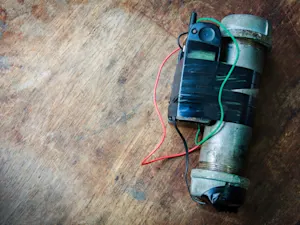
Do Lie Detectors Really Work?
We live in a world where honesty is often elusive, where lies can sometimes slip from our lips without us even realizing it. But what if there was a way to catch those lies red-handed?
Enter the lie detector, a device shrouded in mystery and controversy. Let's dive into the world of polygraphs and explore whether they truly hold the key to identifying deceit.
The Science of Lies
Lying is a complex dance between our minds and bodies. When we fib, our heart rates quicken, our breathing becomes shallow, and sometimes, we even break into a sweat. These physical reactions are our body's way of betraying us, revealing the stress of deception.
But not everyone dances to the same tune of deceit; some individuals, like psychopaths, can lie without batting an eye.
A Look Inside the Brain
Our brains play a crucial role in the art of lying. Studies have shown that concocting a lie requires more mental effort than speaking the truth. When we lie, specific regions of our brain, like the prefrontal cortex and limbic system, light up like a Christmas tree. It's like a symphony of deception orchestrated by our gray matter.
The Rise of the Polygraph
In the early 20th century, the polygraph, or lie detector, emerged as a beacon of truth-seeking. Pioneered by John A. Larson in 1921, this contraption promised to unveil the secrets hidden within our physiological responses. By measuring changes in blood pressure, heart rate, and respiration, the polygraph claimed to expose lies with uncanny accuracy.
The Flawed Promise
But here's the catch: polygraphs aren't as foolproof as they seem. Despite their widespread use by government agencies and law enforcement, the scientific community remains skeptical.
Decades of research have failed to establish a definitive link between physiological responses and deception. In fact, studies show that polygraphs can be just as likely to flag an innocent person as a liar.
Anxiety: The True Culprit
At the heart of the polygraph's fallibility lies a simple truth: anxiety. Whether telling the truth or spinning a web of lies, our bodies can react with fear and apprehension. Polygraphs can't differentiate between the anxiety of deception and the nerves of innocence.
The Theater of Interrogation
So why do authorities continue to place their faith in polygraphs? Some believe it's all part of the interrogation theater — a psychological game designed to coax confessions from suspects. By wielding the perceived power of the polygraph, interrogators hope to tip the scales in their favor, even if the science behind it is shaky at best.
References: How do lie detectors work? | Lie detectors: Why they don't work, and why police use them anyway























